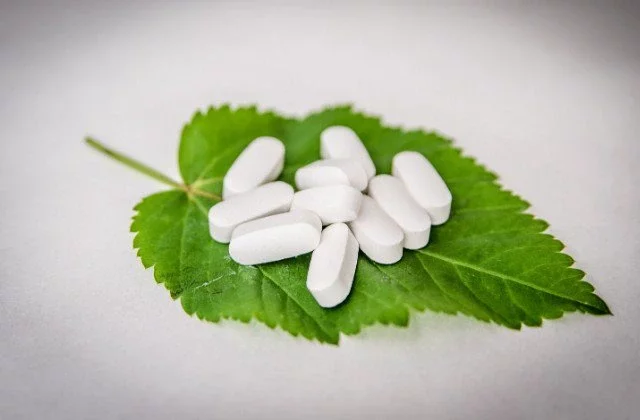Garlic, Ginger, Echinacea, Honey, Goldenseal, Clove, Red Pepper, Oregano, and Grapefruit seed extract are the best herbal antibiotics. Most of us have learned in school about antibiotics like penicillin and probiotics. But did we ever bother to delve deep into the utility of antibiotics?
What is an Antibiotic?
Antibiotics basically are substances that are antimicrobial in nature. As the term “antimicrobial” suggests, antibiotics are substances that restrict the entry of microbes and inhibit their growth. Antibiotics, thus, are very crucial to our survival. Microorganisms are all around us, and to resist ourselves from getting grasped by these harmful microbes, antibiotics are a must! Though there are some microbes that are good for human health, when we talk of antibiotics, it is mainly unhealthy and harmful bacteria that we claim to fight.
Why Antibiotics?
Antibiotics have become widely available and accessible these days. But are chemical antibiotics always healthy, or can we have an alternative to these lab-made drug antibiotics?
This blog deals with the information regarding 9 best natural antibiotics, that are no less in utility than those available in drug stores. Rather, they are more effective in the sense that they are drawn from nature and there are almost no side effects of most of these natural antibiotics.
Here is a list of 9 herbal antibiotics available in your kitchen-
9 Effective and Natural Antibiotics to Beat Infections
Garlic
The most readily available in our kitchen is garlic. Garlic, an essentially inalienable component of our daily meals is known to be a potential threat to bacteria like E.coli and Salmonella. Apart from this, garlic is often used as a home remedy to cure cough and also in cases of tuberculosis, a disease that most drugs are incapable of curing.
Ginger
Ginger is also helpful in fighting certain strains of bacteria. But its utility is not just limited to combating bacteria. Ginger in many cases is also known to have a positive impact on those suffering from nausea, diabetes, and even seasickness. Isn’t that unique!
Echinacea
This ingredient is popularly known for its wound healing, infection resisting properties. It is also used to fight any kind of inflammation caused by bacteria, especially Streptococcus.
Honey
Honey, as we all know, is full of good health and healing properties. Be it in the form of an ointment, or as a food ingredient, honey is in every way the perfect combination of health and taste. In traditional medicines, honey is not just used to fight bacterial infections but prevents any kind of effect of moisture on wounds as well. Doctors these days often suggest honey for burns and ulcers.
Goldenseal
Are digestive problems bothering you? Or are respiratory problems doing so? In either case, goldenseal is an effective remedy. From curing diarrhea to fighting bacteria in the case of Urinary Tract Infections ( UTIs ), goldenseal is a great herbal antibiotic for infections. You can avail of these benefits by simply buying yourself some goldenseal capsules from your nearest drug store, or order online.
Clove
We are all more or less acquainted with the health benefits of this herbal antibiotic. Easily available in our kitchen, clove is mainly known for the impact it has on oral hygiene. Apart from this, clove is also capable of fighting bacteria like E.coli, after having undergone some lab modifications....Read Full Article [Click Here>]
Red pepper
This common food ingredient, largely available in our homes, is full of healthy properties. It contains vitamins B6 and C, hence it can help cure night blindness. Red pepper is also full of antioxidants and thus, ensures healthy metabolism. All in all, red pepper suffices to the basic daily vitamin requirements of a normal human body.
Oregano
Our favorite oregano seasoning is full of flavor, but did we know what wonders it can do to our body? Oregano, a common seasoning to food items like pasta and noodles, is packed with antioxidants and also exhibits anti-inflammatory properties. To extract the best out of this ingredient, one can use it in the form of an oil.
Grapefruit seed extract
Though not very widely known, grapefruit seeds and pulp are a major source of antioxidants, antimicrobials. Heart patients are also to be benefited from this as it is known to ease blood flow in case of any restrictions and maintains heart health. Everything apart, grapefruit seed extract is mainly famous for the usage in has in case of small intestinal bacterial overgrowth (SIBO) and Urinary Tract Infections (UTIs). It is readily available in drug stores these days.
Side Effects of Some Herbal Antibiotics
Though most herbal antibiotics are safe when consumed after directly extracted from nature, you must consider all aspects before you arrive at any conclusion. While most herbal antibiotics are known to kill harmful bacteria, it might affect the good bacteria in the intestine too, often resulting in an aching stomach or diarrhea.
Goldenseal contains alkaloid berberine which is very harmful to women who are pregnant or breastfeeding, as it may affect the baby.
When consuming these natural antibiotics in the form of supplements, it is important to observe and examine the components and concentrations, because along with this healthy natural antibiotic content are a lot of other components. The labels on the products must be read properly before you buy them.
For those who have recently undergone surgery or have bleeding disorders, it’s safe to stay away from garlic. Also, if you are HIV affected, garlic is a definite “No”. Apart from these few safety measures to keep in mind, the prescribed herbal antibiotics are usually safe.
Conclusion
Herbal antibiotics are those existing in nature. As the name suggests and we broadly acknowledge, these are ingredients that act almost as replacements to lab manufactured antibiotics. These are not only a potential source of good health, but also excess in certain other positive factors.
These natural ingredients like ginger, garlic, honey, etc… are easily available in our kitchen and thus, you don’t have to struggle with finding them. While mostly safe to consume, a few factors must be kept in mind, especially for people who have bleeding disorders, HIV affected people and women who are pregnant or breastfeeding.





